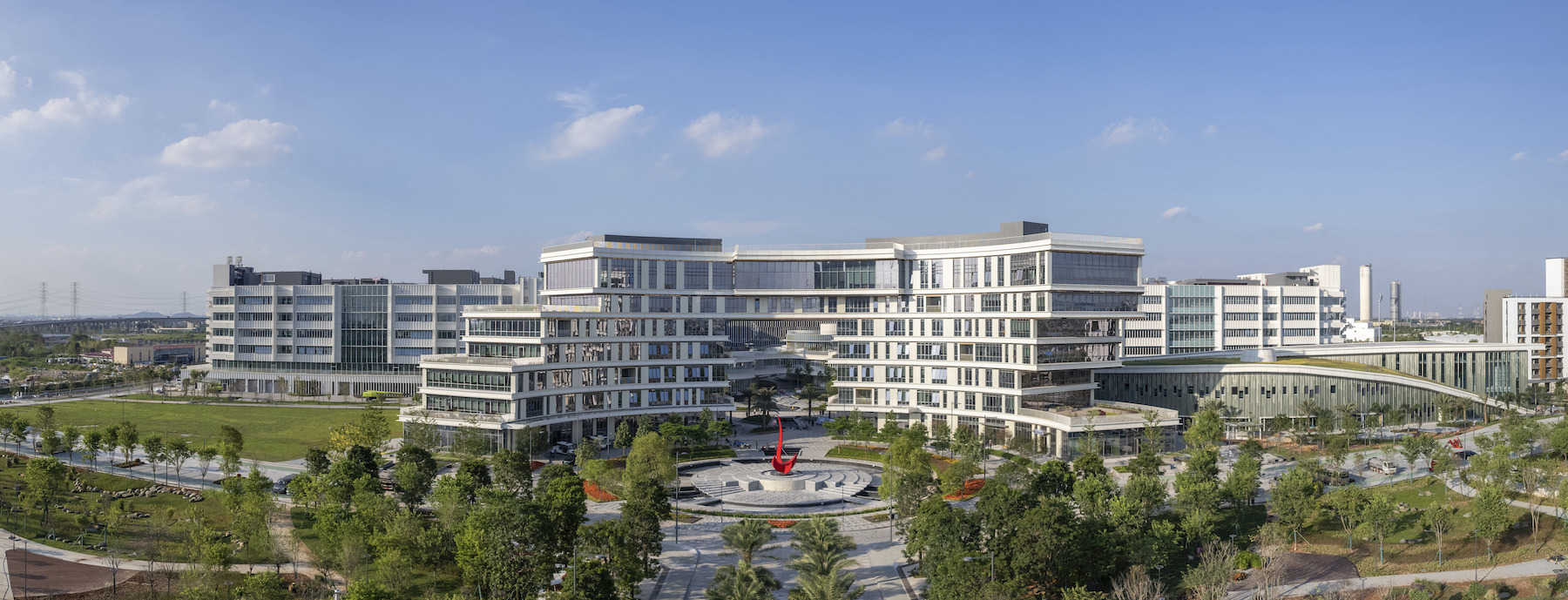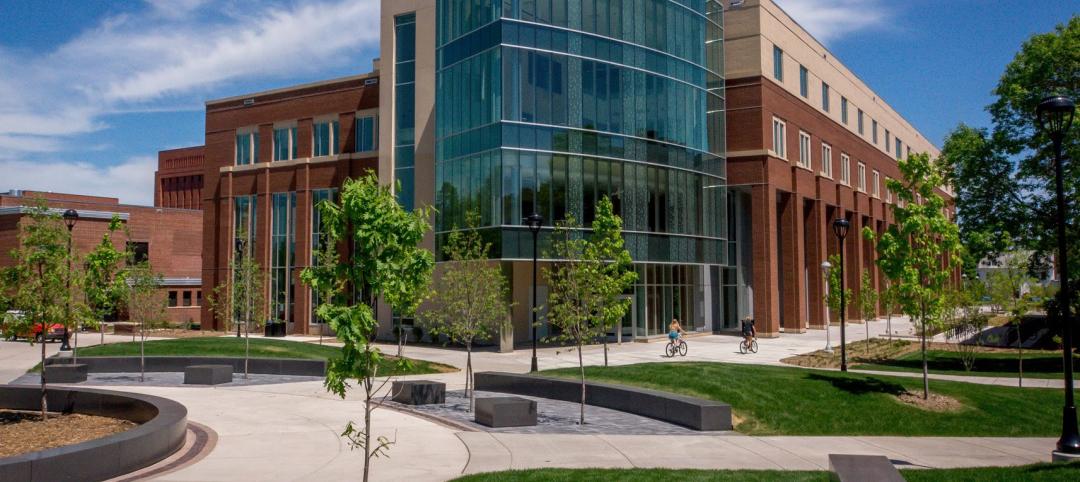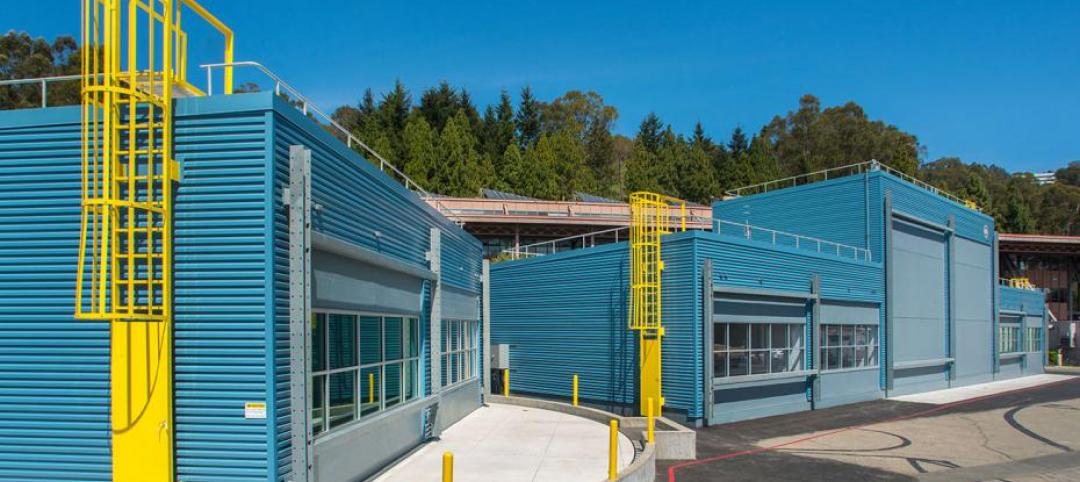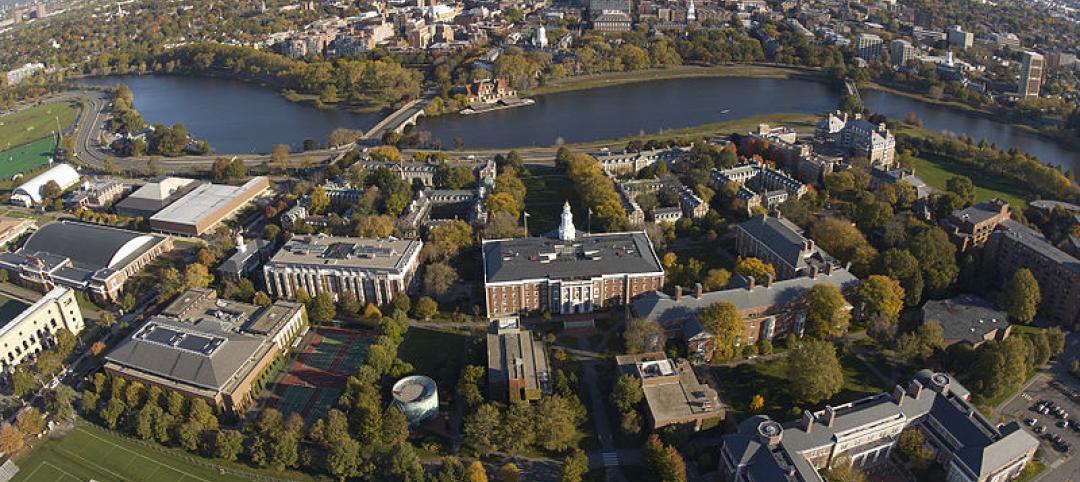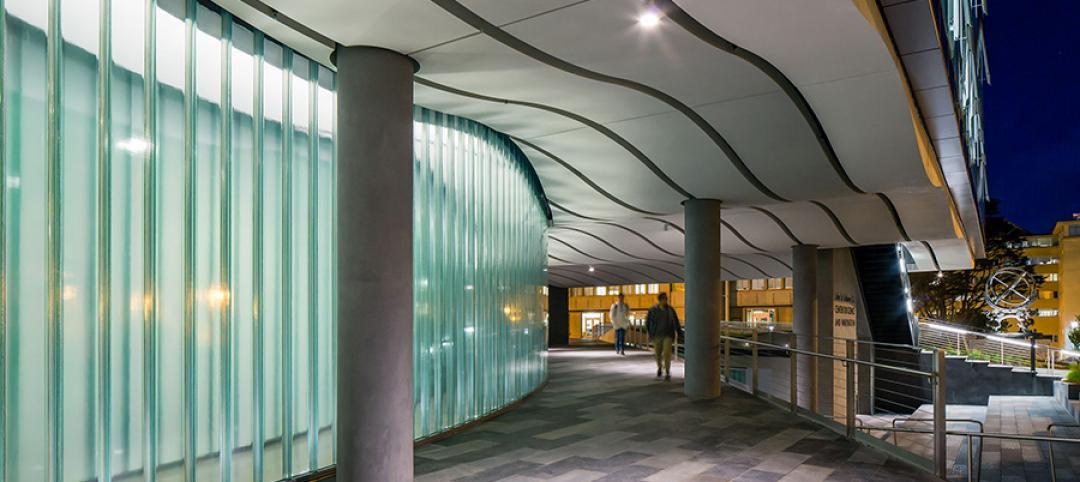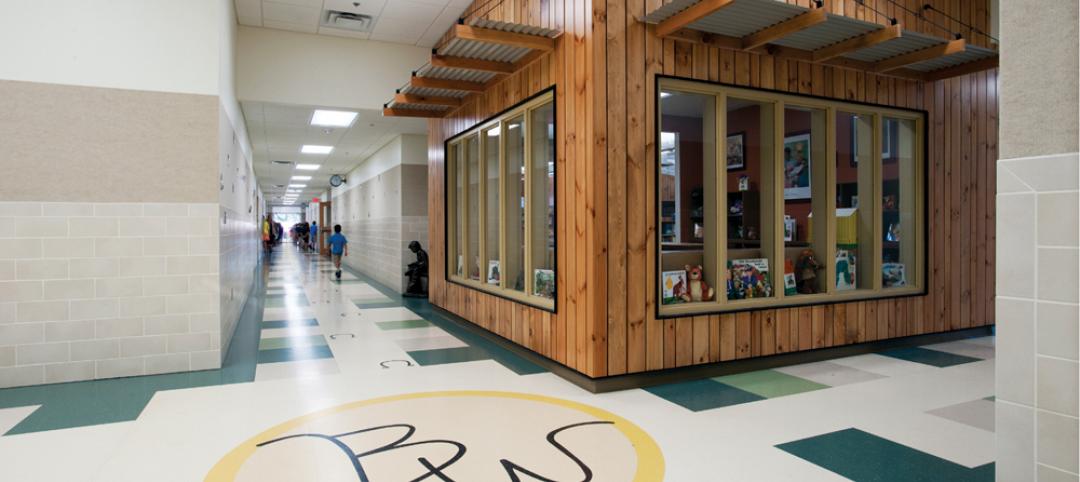In early September, the Hong Kong University of Science and Technology (HKUST) officially opened its new, KPF-designed campus in Nansha, Guangzhou (GZ). The carbon-neutral-ready campus was planned, designed, and built in three years’ time, with a project team comprising over 70 architects and planners across KPF offices in New York, Shanghai, Hong Kong, and Singapore.
The project’s first phase includes nearly 6 million square feet (about 550,000 square meters) for over 4,000 graduate students and 400 faculty members. It provides research facilities for subjects such as robotics and autonomous systems, smart manufacturing and transportation, microelectronics, and atmosphere and ocean systems.
Rather than following a traditional academic structure based on schools and disciplines, HKUST(GZ) centers around a project-based learning model that encourages multi-disciplinary interactions. The campus features eight research and lab buildings, connected by shaded arcades, and a full range of teaching spaces, including seminar classrooms, labs, large lecture halls, maker spaces, and collaborative workspaces.
“Landscape and building spaces come together to create an atmosphere where scientists will be energized and inspired to innovate,” James von Klemperer, KPF president, said in a statement.
From day one, HKUST(GZ) achieves a 54 percent reduction of carbon emissions, with a goal of reaching carbon neutrality before 2060. The plan’s environmental and resiliency measures have been designed for Guangzhou’s hot, humid climate and the rapidly urbanizing area’s flooding, seismic, and climate change risks.
When complete, the campus will accommodate more than 10,000 students and faculty. And it will integrate teaching and learning facilities with housing, neighborhood and campus retail, student life programs, administration, hotel, office and incubator spaces, and athletics facilities.
The HKUST(GZ) campus adds to KPF’s portfolio of research, innovation, and academic facilities around the world, including the CUNY Advanced Science Research Centers in New York City, the University of Michigan’s Detroit Center for Innovation, and NYU’s new Qiantan campus in Shanghai.
On the Building Team:
Owner: Hong Kong University of Science and Technology
Design architect: Kohn Pedersen Fox (KPF)
Architect of record: SCAD (Architectural Design & Research Institute of South China University of Technology Co.)
MEP engineer: ARUP
Structural engineer: ARUP
Landscape design: James Corner Field Operations
General contractor/construction manager: central hub: China Railway First Group Co. and China Railway Guangzhou Engineering Group Co.; other areas:
Canton One Construction Group Co. and Guangzhou Construction Engineering Co.
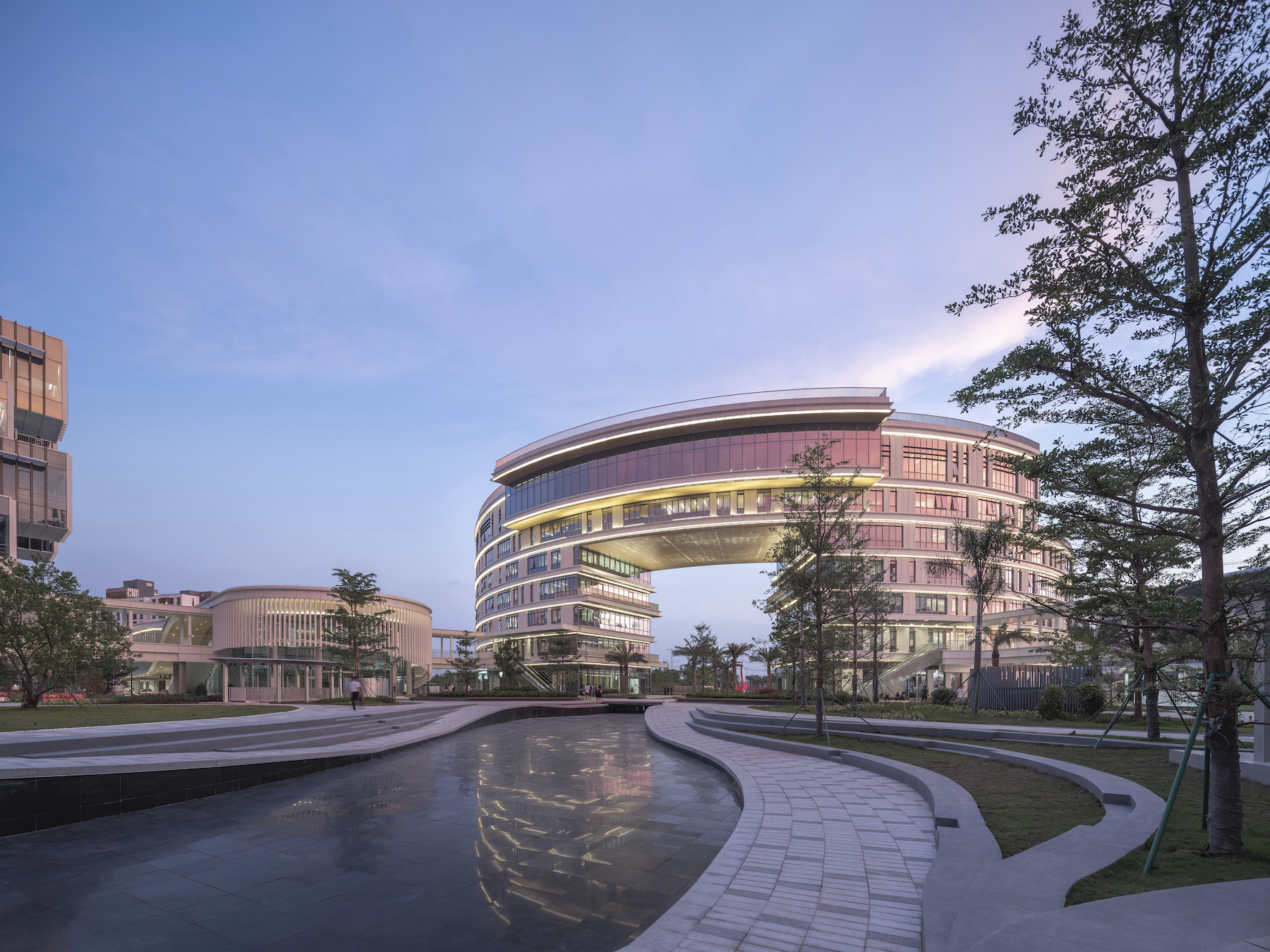
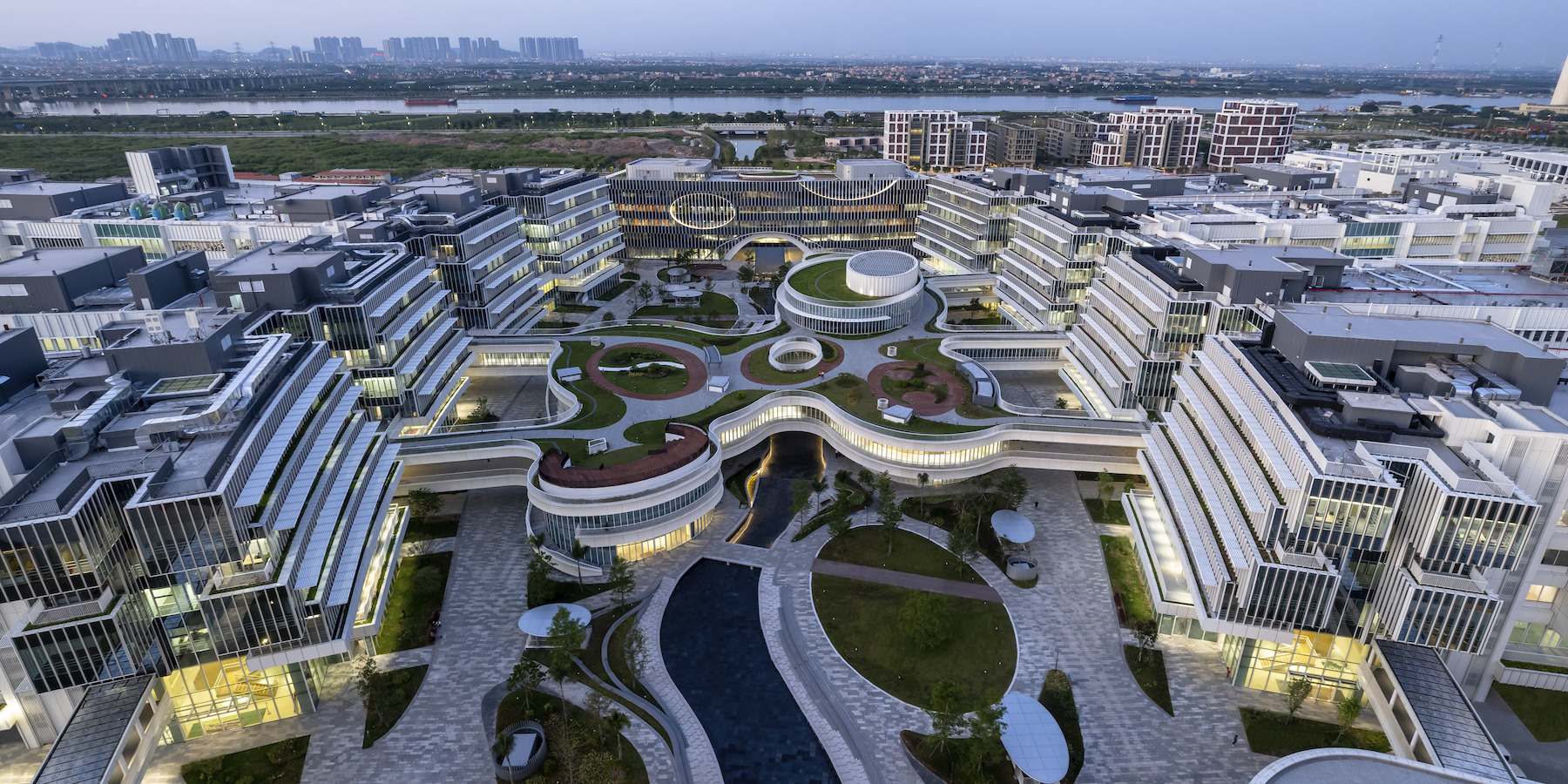
Related Stories
| Jul 18, 2014
2014 Giants 300 Report
Building Design+Construction magazine's annual ranking the nation's largest architecture, engineering, and construction firms in the U.S.
| Jul 11, 2014
$44.5 million Centennial Hall opens at University of Wisconsin-Eau Claire
Centennial Hall houses the College of Education and Human Sciences and consolidates teacher education. It is the first new academic building on the UW-Eau Claire campus in more than 30 years.
| Jul 10, 2014
Berkeley Lab opens 'world's most comprehensive building efficiency simulator'
DOE’s new FLEXLAB is a first-of-its-kind simulator that lets users test energy-efficient building systems individually or as an integrated system, under real-world conditions.
| Jul 9, 2014
Harvard Business School to build large-scale conference center
Expected to open in 2018, the facility will combine the elements of a large-scale conference center, a performance space, and an intimate community forum. The new building will be designed by Boston-based William Rawn and Associates.
| Jul 7, 2014
7 emerging design trends in brick buildings
From wild architectural shapes to unique color blends and pattern arrangements, these projects demonstrate the design possibilities of brick.
Sponsored | | Jul 7, 2014
Channel glass illuminates science at the University of San Francisco
The University of San Francisco’s new John Lo Schiavo Center for Science and Innovation brings science to the forefront of academic life. Its glossy, three-story exterior invites students into the facility, and then flows sleekly down into the hillside where below-grade laboratories and classrooms make efficient use of space on the landlocked campus.
| Jul 2, 2014
Emerging trends in commercial flooring
Rectangular tiles, digital graphic applications, the resurgence of terrazzo, and product transparency headline today’s commercial flooring trends.
| Jun 30, 2014
Research finds continued growth of design-build throughout United States
New research findings indicate that for the first time more than half of projects above $10 million are being completed through design-build project delivery.
| Jun 18, 2014
Arup uses 3D printing to fabricate one-of-a-kind structural steel components
The firm's research shows that 3D printing has the potential to reduce costs, cut waste, and slash the carbon footprint of the construction sector.
| Jun 16, 2014
6 U.S. cities at the forefront of innovation districts
A new Brookings Institution study records the emergence of “competitive places that are also cool spaces.”


